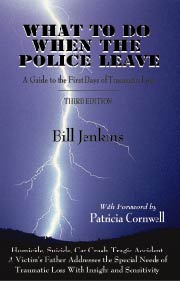Charles Hurt is the murder victim central to the case facing the U.S. Supreme Court in 2015, Montgomery v Louisiana.

Officer Down Memorial Page
Juvenile Officer
Charles H. Hurt
East Baton Rouge Parish Sheriff’s Office, Louisiana
End of Watch: Wednesday, November 13, 1963
Bio & Incident Details
Age: 39
Tour: 1 year, 4 months
Badge # Not available
Cause: Gunfire
Weapon: Handgun; .22 caliber
Offender: Sentenced to life
Juvenile Officer Charles Hurt was shot and killed as he and another officer were searching for students who were playing hooky from school. They were searching a wooded area near a high school when a 17-year-old student shot him once with a .22 caliber pistol.
The subject was apprehended the next day.
The suspect was convicted of first degree murder and sentenced to death. His sentenced was later reduced to life in prison.
Officer Hurt had served with the East Baton Rouge Parish Sheriff’s Office for 17 months. He was survived by his wife and three children.
Most Recent Reflection
I remember as if it were yesterday when officer Charles H. Hurt was killed in the line of duty. I was nine year old and it forever impacted my lift
Charles Hurt was my father and to this day I miss him and wish he could have known his grandchildren and great grandchildren. You meet too few men with a heart like my father had.
Thankfully his life had a greater impact on me than his death. I remember his love, laugh, smile and generous spirit. My mother now lives with me and at 83 she still speaks almost daily of her life with dad and looks forward to the day they will be reunited in heaven.
Growing up without a father does have an impact on children, but I would rather of had the nine years with my dad than a lifetime with any other. He showed me how to parent and give of myself. He also showed me how to love God and taught me to be thankful for each day.
Unfortunately for the man that took his life that he could not have known Charles Hurt, as I know my father could have a positive influence on him. Maybe then they could have both had a chance.
My prayers go forth for the families of all fallen officers.
Daughter, Becky Hurt Wilson
December 6, 2013
Read more: http://www.odmp.org/officer/6882-juvenile-officer-charles-h-hurt#ixzz3keFsCq9T
U.S. Supreme Court to consider Baton Rouge case to re-evaluate life sentences for murders by juveniles
High court to reconsider juvenile life terms
Becky Wilson forgave Henry Montgomery years ago for the 1963 murder of her father, East Baton Rouge Parish sheriff’s deputy Charles H. Hurt, but that doesn’t mean she wants him to go free.
Montgomery, 17 years old when Hurt was gunned down in a Scotlandville field, has been locked up since the day after the killing. Next fall, the U.S. Supreme Court will hear arguments to decide whether Montgomery, now 68, should have a chance to leave prison. The justices will weigh whether their June 2012 decision banning automatic life terms for juveniles convicted of murder should apply to older cases.
For Wilson, who lost her father when she was 9, the answer is clear.
“Unfortunately, our sentence has no way of being overturned or commuted. We live with this forever,” Wilson, 60, said from Hope, Arkansas. “My mother served a life sentence without her husband; my brother, sister and I have served a life sentence without our father; my children, nieces and nephews have served a sentence of never knowing their grandfather.”
Montgomery was convicted and sentenced to death in 1964, then retried in 1969 and convicted and sentenced to life in prison without parole.
“I don’t feel vindictive toward the man. I feel like he got two fair trials,” Wilson said. “I’m not upset the death sentence was overturned.”
Montgomery, who escaped for just a few hours with seven others from the East Baton Rouge Parish jail in 1966, has been denied release four times — in 1971, 1995, 1999 and 2001, she added.
“They had more than enough time to consider his background,” Wilson said.
In its 2012 ruling, the U.S. Supreme Court said by a 5-4 vote that states can no longer automatically sentence juveniles convicted of murder to life in prison without parole without first holding a sentencing hearing to consider the defendant’s youth, upbringing, circumstances of the crime and other factors.
The court found that “youth matters for purposes of meting out the law’s most serious punishments.” In an opinion written by Justice Elena Kagan, the court said that children simply don’t have the same mental capacity as adults, so they should be treated differently. The decision noted “children’s diminished culpability and heightened capacity for change.”
The ruling, in a case called Miller v. Alabama, did not ban juvenile life sentences altogether; the high court only outlawed the automatic imposition of the sentence. Judges must consider each defendant’s case individually, taking into consideration the child’s home life and ability to be rehabilitated.
The high court, however, did not say whether the decision applied retroactively to inmates across the country serving life terms for killings they committed when they were under 18.
Louisiana Department of Public Safety and Corrections spokeswoman Pam Laborde said Tuesday that as of April 2013, there were 332 offenders in state custody who were sentenced to life without parole as juveniles for various crimes, including first- and second-degree murder and aggravated rape. The bulk of them were sentenced before the Supreme Court’s ruling.
Courts in various states have split on whether the Miller ruling should be retroactive.
Supreme courts in Louisiana, Minnesota, Pennsylvania and Michigan have ruled that the U.S. Supreme Court’s 2012 decision should not be applied to cases prior to the decision. Intermediate appeals courts in Florida and Michigan have ruled the same way.
The Louisiana high court, in a 5-2 decision in November 2013, concluded that federal law only makes a new ruling from the U.S. Supreme Court apply retroactively when there is a “substantive” issue decided, such as the banning of a kind of punishment entirely or a crime deemed unconstitutional. An example would be the 2005 abolition of the death penalty for juvenile offenders.
The state Supreme Court found that the Miller decision was a procedural one, so it does not apply to past cases.
The Louisiana case centered around Darryl Tate, who was 17 when he robbed a man of 40 cents and shot him in the chest.
Tate pleaded guilty in Orleans Parish in 1981 to second-degree murder and was sentenced, automatically under state law, to spend the rest of his life in prison without hope for parole.
In the Montgomery case, the Louisiana Attorney General’s Office — which is handling the arguments for the East Baton Rouge Parish District Attorney’s Office — emphasizes that the Miller decision does not bar life sentences without the possibility of parole. Instead, it replaced an automatic mandate with the requirement to hold a hearing.
Attorney General’s Office spokeswoman Laura Gerdes Colligan said the fact that Montgomery killed Hurt is not in dispute.
“The Court did not grant review in this case because of anything wrong with the underlying murder conviction, but instead to resolve an important legal question,” she said. “The Attorney General’s Office and the East Baton Rouge Parish District Attorney’s Office will vigorously defend the murder conviction and sentence in this case, which has been final for 45 years.”
Mark Plaisance, who will argue at the U.S. Supreme Court on Montgomery’s behalf for the East Baton Rouge Parish Public Defenders Office, said he will make the argument that what the high court did in June 2012 represented a substantive change in the law.
“Since it’s a substantive change it should apply to everyone in that class,” he said.
The highest courts in Iowa, Mississippi and most recently Florida, as well as midlevel courts in Illinois and New Hampshire, have decided that Miller v. Alabama does apply retroactively, and the U.S. Department of Justice has agreed.
Federal circuit courts have also divided on the issue, with some tossing out previously imposed life sentences and others upholding them.
The U.S. Supreme Court will ultimately have to settle the confusion.
In direct response to the high court’s 2012 ruling, the Louisiana Legislature approved a measure during the 2013 regular session requiring a sentencing judge to hold a hearing to determine whether the sentence should be imposed with or without parole eligibility. If a sentence is imposed with eligibility for parole, the legislation gives incarcerated offenders ashot at freedom after serving 35 years for first- or second-degree murder, according to the legislation that the governor signed into law.
The Louisiana Supreme Court concluded in its 2013 decision that state lawmakers never intended the law to be read to apply to those already sentenced.
In a dissenting opinion joined by Justice Jeff Hughes, Chief Justice Bernette Johnson wrote, “Fundamental fairness in the administration of justice requires that these new laws apply to Darryl Tate, and all defendants who are similarly situated in Louisiana.”
The U.S. Supreme Court had agreed last fall to decide about retroactivity in the New Orleans case of George Toca, which was to be heard at the high court later this month. But Toca was released from prison earlier this year under a plea deal in which he agreed to drop his innocence claim in exchange for pleading guilty to two counts of armed robbery and manslaughter. His sentence was equal to the time he had served.
Toca, who was barely 17 at the time of a fatal 1984 stickup, spent 31 years in prison.
In legal filings in that case about the retroactivity issue, Orleans Parish District Attorney Leon Cannizzaro’s office argued it would be nonsensical to ask local judges decades after a crime was committed to evaluate a juvenile’s capacity to change.
Advocates for juvenile lifers countered that judges could instead look at an inmate’s record while behind bars.
Charles Hurt was 41 and living in Baker when he was fatally shot by Montgomery, a black Scotlandville High School 10th-grade student who was described at the time as answering to the nickname “Wolf Man.” Montgomery told authorities he “panicked” and shot Hurt on Nov. 13, 1963, with a stolen .22-caliber pistol after the white officer confronted him playing hooky in a wooded field near the Anna T. Jordan Recreation Center in Scotlandville.
A news article in The Morning Advocate printed the day after the killing described Hurt as the first law enforcement officer in East Baton Rouge Parish shot to death in three decades. The authorities implemented roadblocks and rounded up and jailed more than 60 black men during the manhunt. The article described the men as being “booked for investigation.”
Defense witnesses at Montgomery’s trials characterized him as being quiet, withdrawn and a habitual thief. He was described as having subnormal intelligence. He pleaded not guilty by reason of insanity.
Wilson said her father was a gentle man who had a great rapport and reputation with both white and black people.
She said her family received a condolence letter from President John F. Kennedy after her father was killed. Kennedy was fatally shot a week later in Dallas.













